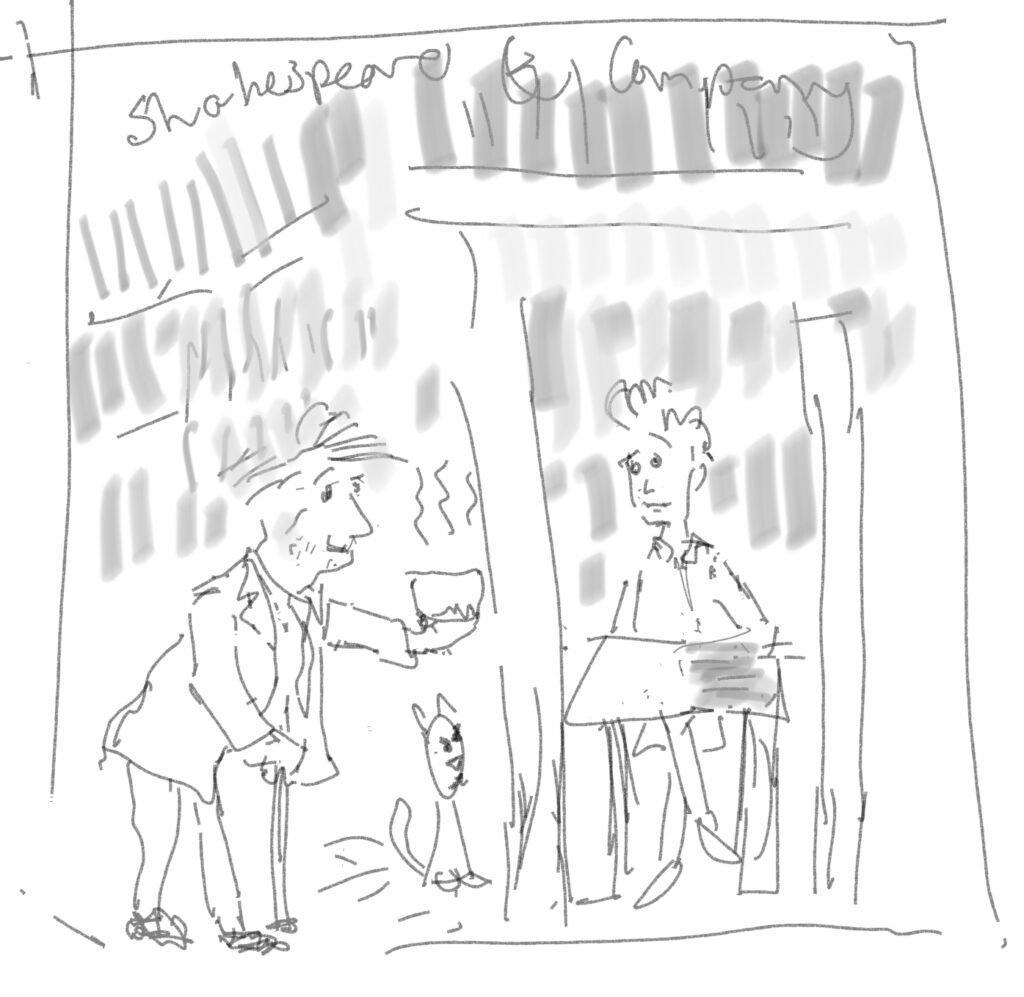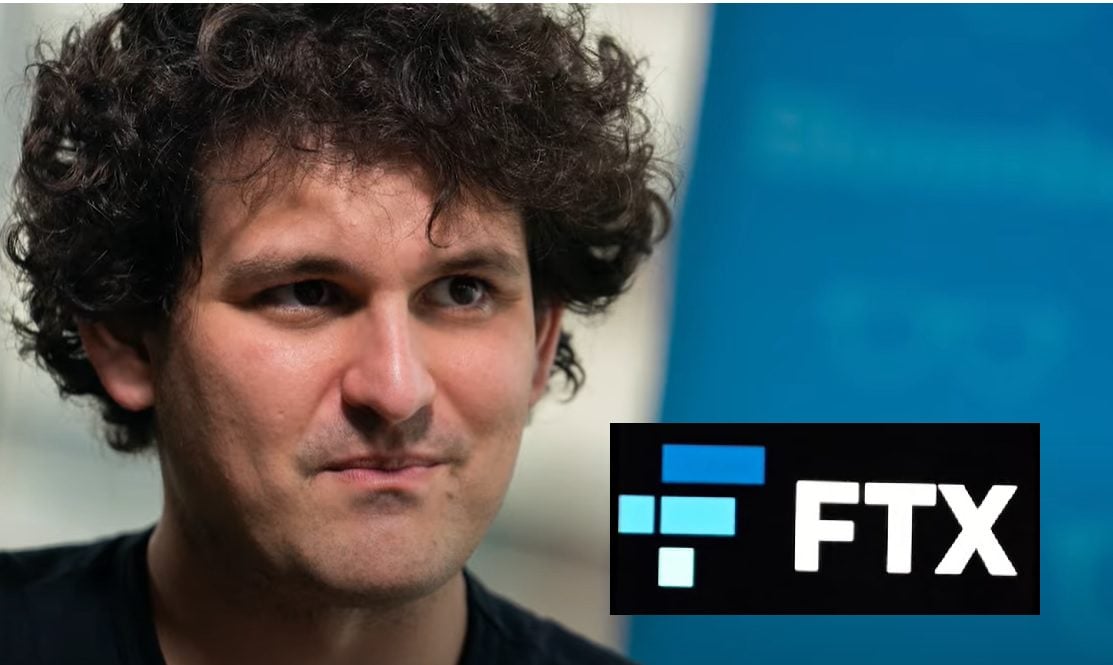Where does it start, this writing business? Forget the initial idea story, the hours spent mapping out the plot, the characters, the research, the edits and the re-drafts. In my case, it started way before that. It started with soup. A greasy, thick, mess of a soup served to me in a Paris bookshop.
It was early evening, May 2000, and I was working part time at Shakespeare and Company. The owner presented it to me as I sat at the till. His name was George and he was white-haired, wiry and ancient. Walking cane in one hand and a bowl of soup in the other. A cat brushed against his legs. There were a lot of cats in the bookshop.
“Thought you might be hungry,” George says. He has a voice like a scratchy record.
“I was,” I reply, until I smelled the soup. He’s not going to leave until I try it, so I try it, swallowing a greasy spoonful of something unidentifiably soft. It might have been a mushroom, it might have been offal. There was pasta in there too, a thin chopped spaghetti that surfaced occasionally and wrapped itself around my teeth like a hair. A root vegetable bobbed up and down, the color of a used band-aid.
“Eat it all up,” George says. He nods as I take another mouthful, watching me carefully. There’s a look in his eye I don’t entirely trust. I swallow some more. He nods again, seems satisfied, then disappears off upstairs. The cat stays and gives me a sour look. I have a feeling I’m eating its dinner. Once I’ve had that thought I can’t shake the idea the soup is cat food with hot water poured over it.
It probably wasn’t. But it was disgusting. George was not an ordinary boss and Shakespeare and Company was not an ordinary bookshop. When I worked there it was barely a bookshop at all. More of a doss house for traveling poets in search of whatever poets are searching for in Paris. Poems, perhaps. If so, they were likely to be disappointed. In my experience poems tend to hide from clichés, rather than actively seeking them out.
George let these travelers stay for free, camping out on a spare patch of floor or a bench in between the tightly packed shelves. In return they helped in the shop. Or gave him poems. The other two people who worked there were Maroushka and Sophie. Like me they took the odd shift while doing other things like studying, wandering around museums, and drinking. Maroushka was one of those teenagers who’s already lived in more cities than most of us will visit in a lifetime. The kind of person who doesn’t have parents. Possibly a father who’s an arms dealer or oil trader and a mother who runs a gallery and used to be a ballerina. (I have a feeling I’ve just described her actual parents. But then, they’re the kind of parents I’d give her if I was creating a fictional character, so that’s probably why it feels right.)
Sophie was on her year abroad from Oxford, studying acting or dance or something. She was having an affair with one of her teachers. Or maybe it would be more accurate to say he was having an affair with her. Like a poet in search of a cliché, she fell into his arms. Thinking on it, I have no idea why I know this. Probably Maroushka told me, so it may have been nonsense. I remember George loved Sophie, and would appear in a linen suit and straw hat to take her out to dinner, leaning nonchalantly on his cane and cracking jokes I couldn’t quite hear. See that guy over there? I fed him cat food!
I got fired after a few weeks. Obviously. I spent most of my time reading instead of working and I had no idea how to do the few things George asked me to do.
“You need to sort out the accounts,” he’d say.
“Accounts?” I replied. “I’ve no idea how to do accounts.”
“Just enter numbers, make sure each column adds up to 300.”
“300 what?”
George waved his hand dismissively. Conversation over. At his stage in life you don’t want to have to spend all your time explaining things to people who should just be able to get on with stuff. Not when you could be choosing a restaurant for dinner with Sophie and a flower for your button hole. I took the notebooks upstairs and began to write numbers in columns. Although mostly I was staring out of the window. It was late spring. It was Paris. I was 22. Whatever it was I supposed to be doing with the accounts was simply a side dish to the general living of life.
There was movement behind me, a rustling sound. What I’d taken to be a pile of old clothes was slithering into life. A poet crawled out from inside his sleeping bag. He had red hair tied back in dreadlocks and a face that looked like it would have trouble remembering much of the last week. Or even the last year.
I asked him if he knew how to do the accounts. He suggested logging the numbers we had on the ticket on the back of the books in the notebook. It was good advice. He also told me George sometimes slipped checks into books. Cash, too. It was part of his filing system. People knew this and came to the bookshop to rifle through the pages with the specific intent of finding money. I don’t know what books George chose to hide cash in, and I never found any, but I like to think it would have been books by authors he wanted people to read. I also liked the idea that this secret was barely a secret at all, and wondered if any of those would-be thieves ever became so absorbed in their book that they forgot why they were there in the first place. Maybe they just sat down on a poet and spent the afternoon reading. Maybe the sleeping bags, old clothes, and books gradually absorbed them until they were born again from the chrysalis smelling slightly of tramp and old cats, flying away on pages of perfectly written prose.
Because in a way, that’s what happened to me. Amid the cat hair and the piles of old books I knew exactly what I wanted to be. I wanted to write. How could I not? The shop itself was a writer, generating hundreds of stories everyday. An end point and a beginning. Here’s how you do it, it seemed to say. A dash of history, of comedy, intrigue and gossip. A sense of place. A mystery or two. Here are the thousands of people who’ve done it before. Pick up a book. Sit here awhile, and let it talk to you. Find out how it’s done. Now go away and practice, practice, practice.
These days, Shakespeare and Company probably has its own Twitter and Instagram. I haven’t checked. I don’t want to know. But I’m sure if you visit the place it will still plant a story in you, and one way or another, it’s coming out. Just like George’s soup.
“Shakespeare and Co. Antiquarian Books, Paris” by Serge Melki is licensed under CC BY 2.0.


























































